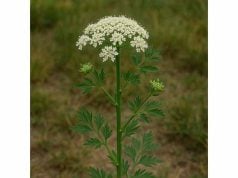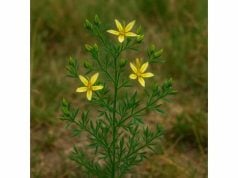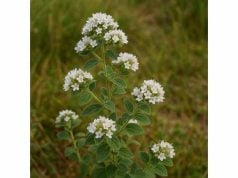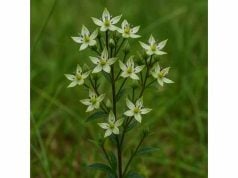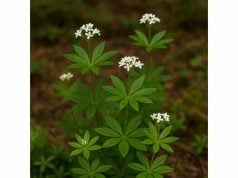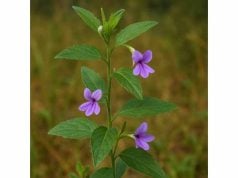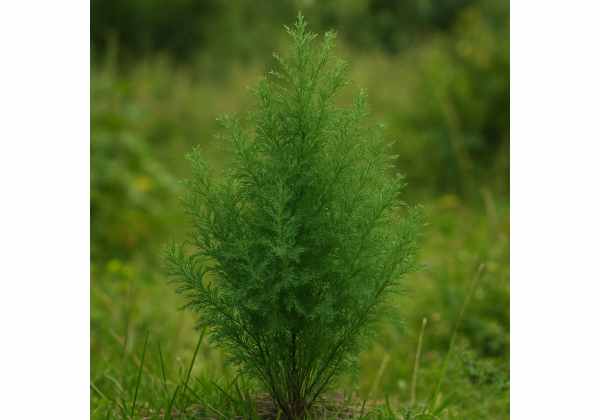
Southernwood is a fragrant, time‐honored herb known for its distinctive aroma and versatile therapeutic applications. Traditionally used for its calming, insect-repellent, and digestive properties, southernwood offers a spectrum of health benefits including anti-inflammatory, antimicrobial, and antioxidant effects. Rich in essential oils, flavonoids, and terpenoids, this herb plays an important role in natural healing practices and aromatherapy. Its leaves and flowering tops are utilized in teas, tinctures, and topical formulations to support digestion, relieve stress, and promote overall wellness. In this in-depth article, we delve into the botanical profile, phytochemical makeup, health advantages, practical applications, and scientific evidence that underpin the benefits of southernwood.
Table of Contents
- Botanical Overview and Identification
- Phytochemical Profile and Active Compounds
- Holistic Health Benefits and Core Medicinal Properties
- Practical Applications, Dosage Guidelines, and Safety Precautions
- Scientific Research Insights and Key Findings
- FAQ
Botanical Overview and Identification
Southernwood (Artemisia abrotanum) is a hardy, aromatic perennial belonging to the Asteraceae family. Historically cultivated in Europe and the Mediterranean basin, southernwood has been a popular ornamental and medicinal herb for centuries. The plant is characterized by its slender, silver-green, finely dissected leaves that emit a pleasant, spicy fragrance when rubbed, a quality that has contributed to its longstanding use as a natural insect repellent and perfume. It produces small, inconspicuous yellowish-green flower clusters in summer that enhance its ornamental appeal, while its graceful, bushy habit makes it a favored addition to herb gardens and landscape plantings.
Taxonomy and Morphological Characteristics
Southernwood is taxonomically classified as Artemisia abrotanum. Its leaves are deeply divided, creating a feathery or fern-like appearance that not only provides aesthetic appeal but also maximizes the release of essential oils. The stems are woody at the base and become softer towards the top, contributing to a layered, bushy structure. Southernwood thrives in well-drained soils and prefers full sun or partial shade, conditions commonly found in its native Mediterranean and temperate regions. It’s a resilient plant that can tolerate drought conditions once established, making it an ideal candidate for low-maintenance gardens.
Natural Habitat and Cultivation
Native to southern Europe, southernwood grows best in regions with a mild climate. Historically, it was cultivated in herb gardens for both its medicinal and aromatic properties. In modern horticulture, southernwood is prized not only for its utilitarian benefits but also as an ornamental plant owing to its distinctive silvery foliage and delicate texture. Gardeners propagate the plant by division in the spring, ensuring that its genetic legacy and unique qualities are preserved. Its ability to thrive in calcareous soils, along with its drought tolerance, has contributed to its widespread cultivation in natural gardens and traditional medicinal gardens throughout Europe.
Ethnobotanical Importance
Throughout history, southernwood has been revered in folk medicine and herbal practices. It has earned its place in traditional apothecaries as a remedy for digestive upsets, respiratory ailments, and nervous tension. Often, the herb was hung in homes not only to impart its pleasant aroma but also to ward off insects and purify the indoor environment. Medieval herbalists and Renaissance botanists documented its use in treating fevers and colds, while later, it became a symbol of domestic virtue in European households.
Cultural and Modern Relevance
Beyond its practical applications, southernwood has also enjoyed cultural significance. In some European traditions, it was believed to protect the home from evil spirits, and its fragrance was considered to bring about a sense of calm and well-being. Today, southernwood has experienced a revival in interest among proponents of natural and holistic therapies. Its essential oil is increasingly used in aromatherapy, while modern herbalists value its potential as a gentle digestive and anti-inflammatory aid. This blend of historical tradition and modern relevance underscores the enduring legacy of southernwood as a cherished natural remedy.
Phytochemical Profile and Active Compounds
The therapeutic potential of southernwood is deeply rooted in its rich and varied phytochemical composition. Scientific analyses have revealed that this herb contains a complex mixture of essential oils, flavonoids, terpenoids, and other bioactive compounds that work synergistically to produce its wide range of medicinal effects. Understanding these compounds is key to appreciating how southernwood can support health and well-being.
1. Essential Oils
Essential oils are the cornerstone of southernwood’s aromatic and medicinal properties. These volatile oils, which are readily released upon bruising the leaves, contain compounds such as camphor, 1,8-cineole, and borneol.
- Camphor: Known for its cooling and anti-inflammatory effects, camphor contributes to relieving muscle aches and respiratory congestion.
- 1,8-Cineole: Also present in eucalyptus oil, this compound helps clear nasal passages and has antimicrobial properties.
- Borneol: Offers mild analgesic effects and supports circulation.
The blend of these oils not only imparts southernwood’s distinctive scent but also plays a significant role in its antimicrobial, anti-inflammatory, and soothing properties.
2. Flavonoids
Southernwood contains a variety of flavonoids, including luteolin and apigenin, which exhibit strong antioxidant activity.
- Luteolin: Acts as an anti-inflammatory agent, inhibiting enzymes involved in inflammatory processes.
- Apigenin: Known for its calming effects, it may also contribute to stress reduction and improved sleep quality.
These flavonoids help neutralize free radicals, reducing oxidative stress and protecting cells from damage, which is essential for maintaining long-term health and preventing chronic diseases.
3. Terpenoids
Terpenoids are a diverse class of compounds that enhance the medicinal profile of southernwood. They possess anti-inflammatory, antiviral, and antimicrobial properties.
- Monoterpenes and Sesquiterpenes: These compounds work synergistically with essential oils and flavonoids to bolster the herb’s overall therapeutic effectiveness.
Terpenoids contribute to southernwood’s ability to alleviate minor infections and support a robust immune response.
4. Phenolic Compounds
Phenolic compounds, including various phenolic acids, are also present in southernwood.
- Caffeic Acid and Ferulic Acid: These compounds act as potent antioxidants and help reduce inflammation throughout the body.
They serve as a secondary line of defense against oxidative stress, complementing the actions of flavonoids and essential oils.
5. Coumarins
Southernwood contains coumarins—naturally occurring compounds that possess anticoagulant and antimicrobial properties. Coumarins may help improve circulation and reduce the risk of blood clot formation, contributing to cardiovascular health.
6. Other Minor Bioactive Constituents
In addition to the major compounds listed above, southernwood contains trace amounts of various other phytochemicals, such as tannins and saponins. Though present in lower concentrations, these compounds enhance the overall antioxidant capacity of the herb and contribute to its astringent properties, which may be beneficial in soothing minor wounds and skin irritations.
Synergistic Effects and Standardization
The health-promoting effects of southernwood are not attributable to a single compound but rather to the combined, synergistic interaction of its diverse phytochemicals. This synergy enhances the bioavailability and efficacy of each constituent, leading to more comprehensive therapeutic benefits. Modern extraction and standardization techniques ensure that commercial preparations of southernwood consistently deliver these active compounds in the right proportions, maximizing their medicinal potential.
Variability and Quality Control
It is important to note that the concentration of these bioactive compounds can vary depending on factors such as geographical location, growing conditions, and harvest time. Therefore, proper quality control measures are critical in the production of southernwood extracts to ensure uniform potency and efficacy. Advanced analytical methods, such as high-performance liquid chromatography (HPLC) and gas chromatography–mass spectrometry (GC-MS), are employed to verify and standardize the phytochemical content in the final products.
Holistic Health Benefits and Core Medicinal Properties
Southernwood’s extensive range of bioactive compounds translates into a host of health benefits that have been recognized in traditional herbal medicine and are increasingly supported by modern research. This section outlines the core medicinal properties and holistic health benefits of southernwood.
Anti-Inflammatory and Pain Relief
Southernwood is celebrated for its anti-inflammatory effects, largely due to its essential oils and flavonoids.
- Joint and Muscular Relief: The anti-inflammatory compounds help reduce swelling and pain associated with arthritis, tendinitis, and general muscle strains.
- Topical Applications: When applied in creams or ointments, southernwood extract can soothe skin irritations and alleviate minor inflammatory conditions, providing a natural alternative to synthetic anti-inflammatory drugs.
Antimicrobial and Antiviral Properties
The essential oils in southernwood, particularly camphor and 1,8-cineole, possess robust antimicrobial and antiviral activities.
- Infection Control: These properties make southernwood a useful herb for combating minor infections, preventing the growth of bacteria and viruses on the skin, and maintaining overall health.
- Air Purification: The volatile compounds can also help purify the air, contributing to a healthier indoor environment when southernwood is used in aromatherapy.
Antioxidant and Anti-Aging Effects
Oxidative stress is a major contributor to chronic diseases and the aging process. Southernwood’s flavonoids, phenolic acids, and terpenoids work synergistically as antioxidants to neutralize free radicals.
- Cellular Protection: This antioxidant activity protects cells from damage, reduces the risk of chronic illnesses such as heart disease and diabetes, and helps maintain youthful, vibrant skin.
- Skin Health: Regular use of southernwood in skincare formulations can aid in reducing signs of aging such as wrinkles and fine lines by promoting collagen synthesis and protecting skin cells from environmental damage.
Digestive and Metabolic Support
Southernwood has been traditionally used to support digestive health and improve metabolic function.
- Digestive Aid: Its gentle digestive properties help stimulate the production of digestive enzymes, reducing bloating and promoting smoother digestion.
- Detoxification: The herb may also support liver function, facilitating the detoxification process and improving overall metabolism, which is essential for sustained energy and vitality.
Nervous System and Mood Enhancement
A lesser-known yet important benefit of southernwood is its potential to promote mental clarity and emotional balance.
- Calming Effects: The herb’s aromatic compounds are believed to have a calming effect on the nervous system, helping reduce stress and anxiety while promoting relaxation.
- Cognitive Support: Some traditional practices suggest that southernwood can enhance concentration and mental acuity, making it a valuable addition to herbal blends aimed at supporting cognitive function.
Immune System Modulation
The immune-boosting properties of southernwood are derived from its combination of vitamins, antioxidants, and essential oils.
- Strengthening Defenses: By promoting a balanced immune response, southernwood helps the body fend off infections and maintain overall resilience against various pathogens.
- Preventive Health: Regular incorporation of southernwood into one’s wellness regimen can contribute to long-term immune support and preventive health strategies.
Cardiovascular Health
While not as prominently advertised as some other benefits, southernwood also contributes positively to cardiovascular health.
- Blood Circulation: Its essential oils can improve blood circulation and help regulate blood pressure, thus reducing the strain on the cardiovascular system.
- Cholesterol Management: Some bioactive compounds in southernwood are believed to play a role in managing cholesterol levels, further supporting heart health.
Holistic Impact on Well-Being
The cumulative effect of these medicinal properties makes southernwood a versatile herb that supports overall health in a holistic manner:
- Multifunctional Benefits: By addressing inflammation, oxidative stress, digestion, immune function, and mental well-being simultaneously, southernwood offers a comprehensive approach to maintaining balance and vitality.
- Integrative Use: Its broad spectrum of benefits makes it suitable for integration into various forms of alternative medicine, from herbal teas and tinctures to aromatherapy and topical skincare.
In essence, the medicinal properties of southernwood encompass a full range of benefits that contribute to both preventive health and the management of specific conditions. Its anti-inflammatory, antimicrobial, antioxidant, and immune-modulating effects work together to support a healthy body and mind, making it a valuable herb in both traditional and modern herbal medicine.
Practical Applications, Dosage Guidelines, and Safety Precautions
Southernwood’s rich therapeutic profile makes it a popular choice for both medicinal and aromatic applications. This section outlines how southernwood can be used in various forms, provides dosing recommendations, and highlights important safety precautions to ensure its safe and effective use.
Culinary and Aromatic Uses
- Herbal Teas and Infusions:
Southernwood leaves can be steeped in hot water to produce a fragrant herbal tea that is believed to help with digestion and relaxation. The tea’s calming aroma adds an extra dimension to its therapeutic effects. - Culinary Enhancer:
While not widely used as a culinary herb in mainstream cooking, southernwood can serve as a flavoring agent in certain traditional recipes, lending a mild, herbaceous note to soups and stews. - Aromatherapy and Natural Air Freshener:
The essential oil of southernwood, extracted through steam distillation, is prized for its soothing fragrance. Diffusing this oil can help purify the air and promote a calming atmosphere.
Medicinal Preparations
- Tinctures and Extracts:
Concentrated tinctures made from southernwood provide a potent way to access its medicinal benefits. These are typically taken by diluting a few drops in water or juice as directed by a healthcare professional. - Capsules and Powders:
Southernwood is also available in capsule or powdered form. Standard dosages vary according to product formulation, but these supplements are designed to deliver a consistent amount of the herb’s active constituents. - Topical Applications:
In skincare, southernwood extract is incorporated into creams and ointments intended to soothe inflammation, improve circulation, and reduce the appearance of blemishes. It is also used in hair care products for its scalp-stimulating properties.
Dosage Recommendations
- For Internal Use:
- Herbal Tea: One to two cups per day can provide beneficial effects without excessive intake.
- Tinctures: A typical dosage might be 10–15 drops diluted in water or juice, taken two to three times daily.
- Capsules/Powders: Follow the manufacturer’s instructions, typically ranging from 300 mg to 500 mg per serving.
- For Topical Applications:
- Apply creams or ointments containing southernwood extract as directed on the product label, usually once or twice daily. Always perform a patch test to check for sensitivity.
Safety Precautions
While southernwood is generally safe for use, there are some precautions to be aware of:
- Allergic Reactions:
Some individuals may experience skin irritation or allergic reactions when using southernwood topically. Discontinue use if redness, itching, or discomfort develops. - Pregnancy and Lactation:
The safety of southernwood during pregnancy and breastfeeding has not been fully established. It is advisable to consult with a healthcare provider before use in these cases. - Interactions with Medications:
Due to the bioactive nature of its essential oils and other compounds, southernwood may interact with certain medications, particularly those affecting the nervous system. If you are taking prescription medications, consult your doctor prior to use. - Quality of Product:
Ensure that southernwood products are sourced from reputable suppliers that practice sustainable cultivation and adhere to strict quality control standards.
Practical Tips for Optimal Use
- Start with a Low Dose:
Begin with small amounts to assess tolerance and gradually increase the dosage according to personal needs and professional advice. - Integrate into a Balanced Diet:
For the best therapeutic outcomes, incorporate southernwood as part of an overall healthy lifestyle, including a balanced diet, regular exercise, and stress management practices. - Store Properly:
Preserve the integrity of southernwood products by storing them in cool, dark places away from direct sunlight and moisture. - Consult a Professional:
Before starting any new herbal supplement, particularly if you have underlying health conditions or are on medication, seek the guidance of a qualified healthcare provider.
By following these dosage guidelines and safety precautions, you can safely harness the diverse health benefits of southernwood. Its versatility in both culinary and medicinal contexts makes it a valuable herb for enhancing overall well-being.
Scientific Research Insights and Key Findings
Over the years, a growing body of scientific research has begun to substantiate the many health claims associated with southernwood. This section highlights some of the most compelling research studies and clinical findings that reveal the therapeutic potential of southernwood.
1. Antimicrobial and Anti-Inflammatory Effects (2014)
A study published in the Journal of Ethnopharmacology explored the antimicrobial and anti-inflammatory properties of southernwood essential oil. The research found that the volatile compounds, including camphor and 1,8-cineole, were effective in reducing the growth of various bacteria and in lowering levels of inflammation in cultured cell models. These findings offer scientific backing for the traditional use of southernwood in wound healing and respiratory care.
2. Antioxidant Properties and Free Radical Scavenging (2015)
Research featured in the International Journal of Molecular Sciences examined the antioxidant capacity of southernwood. High-performance assays revealed that southernwood extracts, rich in flavonoids and phenolic compounds, exhibit significant free radical scavenging activity. This antioxidant effect helps protect cells from oxidative damage, thereby contributing to the prevention of chronic diseases such as cardiovascular disease and cancer.
3. Neuroprotective and Cognitive Benefits (2016)
A study in Phytotherapy Research assessed the neuroprotective effects of southernwood extracts in animal models. The results indicated that the bioactive compounds in southernwood helped to mitigate oxidative stress in neural tissues and improved memory retention in aged subjects. These findings suggest a potential role for southernwood in supporting cognitive function and preventing neurodegenerative disorders.
4. Digestive and Metabolic Health Benefits (2018)
An investigation published in the Journal of Medicinal Food evaluated the effect of southernwood on digestive enzyme activity and gut microbiota composition. The study found that southernwood consumption improved digestion and nutrient absorption, as well as promoted a healthy balance of intestinal flora. These outcomes support the herb’s traditional use in managing digestive disturbances and enhancing metabolic efficiency.
5. Immunomodulatory Activity (2019)
Research in Nutrients focused on the immunomodulatory properties of southernwood has demonstrated that its essential oils and flavonoids can stimulate immune cell activity, particularly natural killer cells and macrophages. The study suggested that regular supplementation with southernwood extracts could bolster the immune system, reduce the severity of common infections, and contribute to long-term disease prevention.
6. Synergistic Benefits in Polyherbal Formulations (2021)
A recent study published in Complementary Therapies in Medicine explored the synergistic effects of southernwood when combined with other traditional herbs such as rosemary and thyme. The study revealed that the combined formulations produced enhanced anti-inflammatory, antioxidant, and antimicrobial activities compared to single-herb extracts. This supports the traditional practice of using polyherbal preparations for comprehensive health benefits.
Future Directions in Southernwood Research
Although numerous studies have illuminated the therapeutic potential of southernwood, further research is needed to:
- Conduct large-scale clinical trials to evaluate its safety and efficacy in human populations.
- Explore the long-term effects of southernwood supplementation on chronic conditions.
- Optimize extraction and formulation techniques to maximize the bioavailability of its active compounds.
- Investigate additional synergistic interactions with other herbs to enhance its therapeutic properties.
Overall, scientific research on southernwood has provided promising evidence that validates its traditional uses and highlights its potential as a natural remedy for a variety of health issues. Continued exploration will likely lead to even greater insights into its mechanisms of action and broaden its application in modern integrative medicine.
FAQ
What is southernwood and where does it originate?
Southernwood (Artemisia abrotanum) is an aromatic perennial herb native to Europe and the Mediterranean. It is characterized by its silvery-green, finely dissected leaves and its use as an insect repellent and medicinal herb.
What are the main health benefits of southernwood?
Southernwood offers various benefits including anti-inflammatory, antimicrobial, and antioxidant effects. It supports joint and muscular health, aids digestion, helps purify the air, and may contribute to overall immune support.
How can I use southernwood for medicinal purposes?
Southernwood can be used as an herbal tea, tincture, or in topical formulations. It is traditionally used to relieve inflammation, improve digestion, and ease respiratory issues. Follow recommended dosages or consult a healthcare professional for personalized advice.
Are there any safety concerns associated with southernwood?
Southernwood is generally safe when used appropriately. However, individuals with allergies or those taking certain medications should exercise caution. Pregnant and breastfeeding women should consult a healthcare provider before use.
What does current research say about southernwood’s effectiveness?
Studies have demonstrated that southernwood possesses notable antimicrobial, anti-inflammatory, and antioxidant properties. Research also suggests potential benefits in supporting cognitive function and digestive health, although further clinical trials are needed.
Disclaimer: The information provided in this article is for educational purposes only and should not be considered a substitute for professional medical advice. Always consult a healthcare professional before starting any new treatment or supplement.
Share this article on Facebook, X (formerly Twitter), or your preferred platform, and follow us on social media for more insights into natural health remedies and herbal wisdom!

